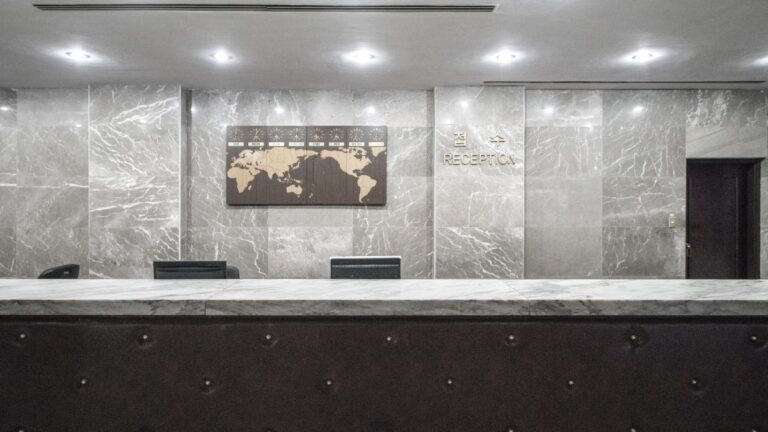How to Avoid Pet Fees at Hotels? Expert Strategies for Cost-Effective Pet-Friendly Stays

As participants in Amazon Associates and other programs, we earn from qualifying purchases. This comes at no additional cost to you. For more details, see our Affiliate Disclosure.
When it comes to traveling with our furry companions, a little extra cost is often a small price to pay for their company. However, those additional pet fees at hotels can start to add up over multiple nights and destinations. Fortunately, with a bit of research and clever strategies, it’s possible to find accommodating stays that won’t break the bank. This guide dives into expert-recommended approaches for securing cost-effective, pet-friendly accommodations without any hidden surprises.
HIGHLIGHTS
- Traveling during off-peak seasons offers the potential for reduced room rates and the possibility of hotels waiving or reducing pet fees.
- Reviews from previous travelers are essential, as they often provide insights into hidden charges and the real pet-friendliness of hotels.
- Preparing your pet at home before the trip can significantly ease their transition into hotel living, ensuring a stress-free experience.
- Building a strong rapport with specific hotels through repeated stays can lead to discounts and better overall treatment for both travelers and their pets.
Understanding Hotel Pet Policies: How Much Are They?
Understanding hotel pet policies is crucial before you embark on any trip with your furry friend.
Typically, hotels charge a pet fee to cover potential damages or additional cleaning required after a pet’s stay. The fees can vary significantly from one hotel to another, with some charging a one-time fee, while others might have a daily rate.
It’s not uncommon to encounter fees ranging from $10 to $150 or more, depending on the hotel’s brand and location.
Doing your research in advance will save you from unexpected costs. Always read the fine print on the hotel’s website or make a direct call to the establishment to get clear information.
By being informed, you can budget appropriately and make decisions that align with your travel expenses. It’s also worth noting that some hotels, despite advertising as “pet-friendly”, might have weight limits or breed restrictions, so it’s essential to clarify these details to avoid complications during check-in.
Early-Bird Negotiations: Discussing Fees Before Booking
Embarking on early-bird negotiations can be a game-changer when looking to save on pet fees. Before making a reservation, reach out to the hotel directly. Instead of just accepting the listed pet fee, inquire if there’s room for negotiation.
Especially if you’re planning an extended stay, the hotel might be willing to offer a discount or waive the fee altogether for the sake of securing a longer reservation.
When discussing fees, it’s helpful to emphasize your pet’s good behavior and any past hotel stays where they didn’t cause any issues. Hotels are primarily concerned about potential damages or disturbances, so assuring them of your pet’s conduct can work in your favor.
Also, being flexible with your travel dates can sometimes allow you to take advantage of lower rates or special promotions. Remember, communication is key. By initiating a conversation about pet fees and showcasing your responsibility as a pet owner, you can often secure a better deal and enjoy a more cost-effective stay.
Membership Perks: Loyalty Programs and Their Benefits
Being a part of hotel loyalty programs can come with a plethora of benefits, one of which might include discounts or waivers on pet fees. Regular travelers who consistently choose the same hotel chain can accumulate points or reach different membership tiers that offer exclusive perks. These perks can range from room upgrades to complimentary services, and in many cases, reduced or eliminated pet fees.
Establishing a rapport with a particular hotel or chain not only earns you points but also positions you as a valued customer. As a result, hotels might be more inclined to accommodate your requests regarding pet fees.
For those who travel frequently, it makes financial sense to stick to one chain when possible, accumulating rewards and leveraging them for pet-friendly stays. Always keep an eye on the fine print of loyalty program benefits and inquire directly about any potential pet-related discounts.
Even if it isn’t a listed perk, your continued patronage and membership status might sway a hotel to give you a break on the costs associated with bringing your furry companion.
Alternative Accommodations: Considering Pet-Friendly Alternatives to Hotels
In the age of technology and the shared economy, travelers aren’t limited to traditional hotels. Platforms like Airbnb, Vrbo, and other vacation rental sites offer alternative accommodations that can be more flexible and cost-effective when traveling with pets.
Many hosts on these platforms are pet owners themselves and understand the needs of travelers with furry companions, leading them to offer pet-friendly stays without extra charges.
Opting for a home or apartment rental can also provide a more comfortable environment for your pet. Unlike some hotel rooms, these accommodations often offer more space to roam, and occasionally, access to outdoor areas. This means not only potential savings but also a happier pet during your travels.
However, it’s vital to communicate with hosts directly about their pet policies. While some might not charge extra fees, they might have specific rules or expectations regarding pets in their property.
By considering alternative accommodations and being proactive in your communication, you can find the perfect stay that’s both kind to your wallet and welcoming to your pet.
Pack Like a Pro: Bringing Essentials to Reduce Potential Fees
One of the smartest moves when traveling with a pet is packing effectively to avoid additional charges. Often, hotels levy extra fees for amenities like pet beds, bowls, or toys. By bringing your own essentials, you can ensure your pet’s comfort and dodge these extra costs. Packing familiar items also helps in soothing your pet, making them feel at home in unfamiliar surroundings.
It’s also beneficial to include cleaning supplies, such as waste bags, pet-safe cleaning wipes, and a small towel. Accidents happen, and being prepared to address any mess immediately not only demonstrates responsibility but can also save you from additional cleaning or damage fees. If your pet sheds a lot, consider bringing a compact lint roller or portable vacuum to manage hair.
Lastly, don’t forget to pack your pet’s food and water dishes, a portioned amount of their regular food, and a few favorite toys to keep them occupied. Consistent feeding and entertainment can reduce the chances of unwanted behaviors, like chewing on hotel furnishings, which might incur additional fees. With a well-packed bag, you place yourself in a favorable position to minimize expenses and ensure a hassle-free stay.
Travel Off-Peak: Leveraging Seasonal Discounts for Pet Owners
Traveling during off-peak seasons can be a strategic move for pet owners aiming for cost-effective accommodations. Hotels, especially in tourist-heavy areas, often lower their rates during quieter times of the year. With less demand, you’re not only likely to secure a better room rate but may also find that establishments are more amenable to waiving or reducing pet fees as an added incentive to attract guests.
Apart from the financial advantage, off-peak travel also often means fewer guests and less hustle and bustle, which can be beneficial for pets. Quieter periods can translate to less stress for animals sensitive to noise or unfamiliar faces. Plus, attractions and parks are less crowded, making outings with your pet more enjoyable.
It’s essential, however, to do some research beforehand. Determine the off-peak periods for your desired destination and inquire about any special promotions or discounts they might offer during those times. By aligning your travel plans with these quieter periods, you not only save money but also give your pet a more relaxed and enjoyable experience.
Harness the Power of Reviews: Learning from Fellow Travelers
Navigating the world of pet-friendly accommodations can be much easier when you harness the power of reviews. Fellow travelers often leave detailed accounts of their experiences, providing insights into hidden fees, the quality of pet amenities, and the overall pet-friendly nature of the establishment.
Websites like TripAdvisor, Yelp, and even Google Maps often feature reviews that specifically discuss experiences with pets.
When browsing reviews, look for mentions of pet-related experiences. Some travelers might share tips on how they successfully negotiated fees or recommend specific rooms or floors that are especially accommodating for animals.
Others might highlight hotels that offer special pet treats, parks, or play areas, ensuring an enjoyable stay for both you and your furry friend.
However, while positive reviews can guide you towards pet-friendly havens, negative ones can serve as warnings. If multiple guests mention exorbitant hidden fees, strict rules, or inadequate facilities for pets, it might be worth considering other options.
By diligently going through reviews and learning from others’ experiences, you can make well-informed decisions, ensuring that you and your pet have a comfortable and cost-effective stay.
Stay Informed: Keeping Up with Changing Pet Policies and Fee Structures
In the ever-evolving world of hospitality, pet policies and fee structures can frequently change based on hotel management decisions, guest feedback, or shifts in market demand. It’s imperative for travelers to stay informed about the latest policies to avoid unexpected costs or complications during their stay.
A hotel that was once very lenient with pets might introduce stricter rules or higher fees, while another might decide to become more accommodating due to the growing trend of travelers with pets. Subscribing to newsletters of your favorite hotel chains or frequently visited establishments can keep you updated on any changes to their pet policies.
Additionally, don’t assume that a hotel’s pet policy from a year ago remains the same. Before each trip, take a moment to revisit the hotel’s website or make a quick phone call to confirm the current pet policy and fee structure.
Open communication with hotel staff can also clue you into any upcoming changes, allowing you to plan future trips more effectively. Being proactive and keeping abreast of policy shifts ensures a smoother travel experience and helps you make the most budget-friendly decisions for you and your pet.
Building Rapport: The Benefits of Repeated Stays and Relationship Building
Building a strong rapport with a specific hotel or hotel chain can pay off significantly for pet-owning travelers. Just like any business, hotels appreciate and often reward loyal customers. If you frequently visit a particular destination, consistently staying at the same hotel can lead to a relationship of trust.
Over time, the staff and management become familiar with you and your pet, recognizing your consistency in adhering to rules and ensuring no damage occurs.
By becoming a familiar face, you not only increase the chances of enjoying upgrades or special amenities but also position yourself in a favorable light when it comes to negotiating or waiving pet fees. Hotels are more likely to make concessions for guests they know and trust. So, if you’ve built a history of positive stays without incidents, the management might be more willing to offer discounts or even completely drop pet fees.
Moreover, getting to know the staff personally – from the front desk to the cleaning team – can make a world of difference. These relationships not only make your stays more pleasant but also open up channels for flexibility and understanding regarding pet-related matters.
Over time, what starts as a simple client-business interaction can evolve into a mutual appreciation that comes with its own set of cost-effective perks and a home-away-from-home feeling for you and your pet.
Additional Hidden Costs: Parking, Cleaning, and Other Unexpected Fees
When traveling with pets, the primary focus is often on the pet fees, but there are other costs that can sneak up on you if you’re not careful. From parking to cleaning, these hidden charges can quickly escalate your expenses. It’s always wise to inquire in advance about all potential costs to avoid unpleasant surprises when checking out.
- Parking Fees: Especially in city centers or popular tourist destinations, hotels might charge for parking. This fee can range from $10 to $50 per night, depending on the location and type of parking (valet or self-park).
- Additional Cleaning Fees: If your pet has an accident or causes any damage, hotels may levy an extra cleaning fee. This can vary greatly but expect anywhere from $20 to $200, based on the extent of cleaning required.
- Late Check-Out Fees: Pets can sometimes disrupt your routine, causing delays. If you overstay, some hotels charge for late check-outs, costing between $15 and $100, depending on the delay and hotel policy.
- Room Service Pet Menus: Some upscale hotels offer specialized pet menus. While a treat for your pet, it can be costly. Items might range from $5 for a simple snack to $40 for gourmet meals.
- Pet-Sitting or Walking Services: For those who wish to explore without their pets, some hotels offer pet-sitting or walking services. These can range from $20 to $100 per session, depending on the duration and type of service.
Being aware of these potential additional costs allows you to budget appropriately and make decisions that prevent unnecessary expenses.
Ensuring a Stress-Free Stay: Preparing Your Pet for Hotel Living
Navigating the unfamiliar corridors and sounds of a hotel can be daunting for pets. To ensure they feel at ease, start with preparation at home. Before your trip, familiarize them with the items you’ll be bringing, such as a travel carrier or portable bed. The scent and presence of these items can serve as a comfort during the stay.
When checking into the hotel, allow your pet some time to explore the room under your supervision. This helps them understand their new environment and identify safe spaces. Lastly, always prioritize maintaining their regular routine.
Feed, walk, and play with them at the usual times to provide a sense of normalcy amidst the new surroundings. With a bit of foresight and understanding of your pet’s needs, hotel living can be a breeze for both of you.
Final Thoughts: Maximizing Value While Prioritizing Your Pet’s Comfort
Traveling with pets introduces a unique set of considerations, but with the right approach, it’s entirely possible to strike a balance between cost-effectiveness and your pet’s comfort.
It’s not just about finding ways to save money; it’s about ensuring that your furry companion has a positive experience. Building relationships with specific hotels, staying informed about changing policies, and being proactive in negotiations are all steps towards achieving this balance.
Remember, a happy pet contributes to a pleasant travel experience for everyone. As you venture out, let the memories you create be accentuated by the joy and ease of having your beloved pet by your side, all while knowing you’ve made savvy decisions that are gentle on your wallet. Safe travels!






